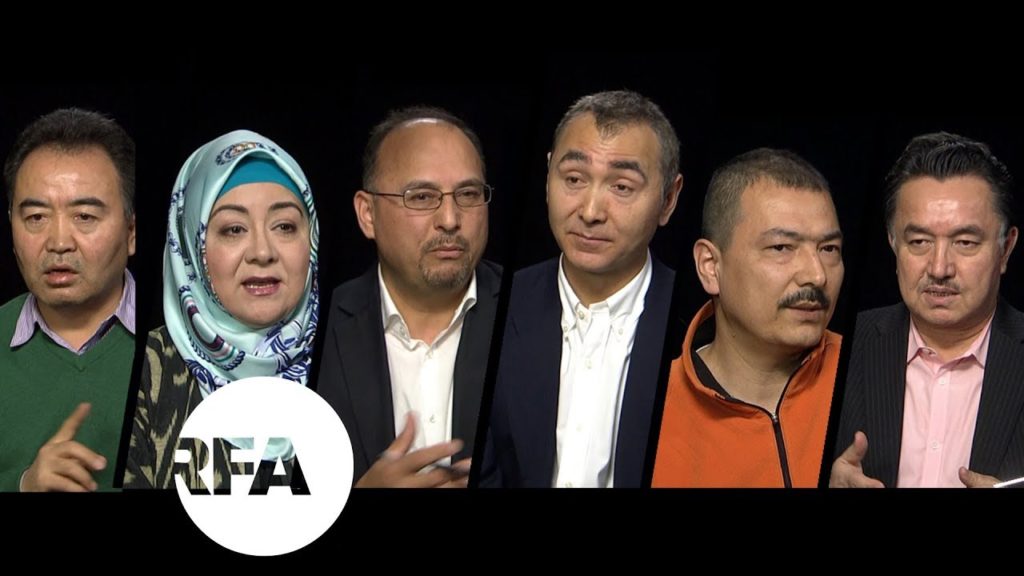China: End Intimidation of Radio Free Asia Uyghur Service Journalists

On World Press Freedom Day 2018, UHRP condemns Chinese government pressure on Radio Free Asia Uyghur Service journalists
For immediate release
May 2, 2018 10:20 am EST
Contact: Uyghur Human Rights Project +1 (202) 478 1920
On World Press Freedom Day 2018, the Uyghur Human Rights Project (UHRP) calls on the Chinese government to cease its intimidation of Radio Free Asia (RFA) Uyghur Service journalists. UHRP condemns the Chinese authorities’ attempt to restrict one of the few non-Chinese state sources of information on political, social, and economic conditions in East Turkestan (also known as the Xinjiang Uyghur Autonomous Region).
In recent interviews, RFA journalists Gulchehra Hoja, Shohret Hoshur, Mamatjan Juma, Jilil Kashgary, Kurban Niyaz, and Eset Sulaiman describe how Chinese authorities have arbitrarily detained family members in “reeducation camps” as part of an extensive campaign to crackdown on so-called “suspicious” categories of Uyghurs. The families of these individuals have been targeted because of their work in uncovering “unreported news and documenting human rights abuses under heavy-handed Chinese rule in their homeland in northwestern China.”
“China’s record on press freedom is abysmal. The leading monitors of press freedom agree that China is one of the worst violators of the right to a free press within its borders. What is particularly concerning about the cases of the RFA Uyghur journalists is that China is now attempting to export its repression overseas. The intimidation of the Uyghur journalists based in DC amounts to an attempt to restrict counter-narratives to the Chinese government propaganda that all is well in East Turkestan,” said UHRP director, Omer Kanat in a statement.
Mr. Kanat added: “These brave journalists have revealed one of the most alarming developments in East Turkestan in recent years. The mass incarceration of hundreds of thousands of Uyghurs is known because of the work of RFA Uyghur Service reporters. With the privilege of living in a society that respects press freedom, these journalists not only warrant our support, but also our vocal objection to China’s hostility to a free press.”
Since the Spring of 2017, China has detained hundreds of thousands of Uyghurs in “reeducation camps.” Reports from Radio Free Asia have revealed the extensive nature of the campaign. A December 14, 2017 article disclosed how authorities were holding nearly ten percent of residents in Kona Sheher Township in “reeducation camps.” Two RFA reports published in January 2018 detailed the overcrowded conditions in camps located in Korla and Hotan. According to sources cited by Radio Free Asia in a January 22, 2018 article as many as 120,000 Uyghurs are being held in “reeducation camps” in the Kashgar region. A recent RFA report detailed how Uyghurs in Ghulja are being detained in five facilities around the city.
Chinese authorities have targeted five categories of “suspicious” Uyghurs for political indoctrination, including those who have lived or traveled overseas and Uyghurs who have relatives abroad. Relatives of the six RFA reporters are among those detained. Gulchehra Hoja told Deutsche Welle: “The Chinese government perhaps wants us to stop raising issues about Uighurs and publishing the truth. That’s why our relatives have been targeted. But we cannot and will not stop, especially at a time when we feel our work is extremely important in highlighting the plight of Uighurs.”
China has previously attempted to intimidate RFA journalist Shohret Hoshur. Three of Hoshur’s brothers in Urumchi were detained in 2014 and 2015. The arrests came after Hoshur published a series of articles on the unrest in East Turkestan that exposed vulnerabilities in state narratives and he is credited with being one of few journalists to accurately report on events.
Leading press freedom monitors have unequivocally condemned China’s record on censorship and harassment of journalists. China ranks 176th worst for press freedom out of 180 states in Reporters Without Borders’ 2018 World Press Freedom Index. Freedom House’s Freedom of the Press 2017 report placed China in the “Not Free” category. Freedom House also placed China in the “Not Free” category for its Freedom on the Net 2017 report. In its 2017 prison census, the Committee to Protect Journalists documented 41 journalists imprisoned in China (of them 14 are Uyghur).
In a survey of reporting conditions in 2017, the Foreign Correspondents’ Club of China noted increasing difficulties for overseas journalists based in China, particularly in East Turkestan. An April 11, 2018 article published on the Center for International Media Assistance website described China’s increasing attempts to undermine the independence of overseas Chinese-language media.
International standards of press freedom are outlined in a series of legal instruments, including the Universal Declaration of Human Rights and International Covenant on Civil and Political Rights (ICCPR). Freedom of speech and the press are guaranteed under Article 35 of the Constitution of the People’s Republic of China.
See also:
The Washington Post: China detains relatives of U.S. reporters in apparent punishment for Xinjiang coverage (February 28, 2018)
Committee to Protect Journalists: China detains relatives of RFA Uighur service journalists (February 28, 2018)
The New York Times: After U.S.-Based Reporters Exposed Abuses, China Seized Their Relatives (March 1, 2018)
Amnesty International: Urgent Action: 20 Relatives of Uighur Journalist Detained (March 1, 2018)
Reporters Without Borders: China urged to free relatives of RFA’s Uyghur-speaking journalists (March 5, 2018)
Amnesty International: Separated Souls: Uighur journalist’s unbreakable resolve to help her detained family (March 16, 2018)
Nieman Reports: Why Uyghur Issues Go Unreported—in and outside China (January 8, 2016)
